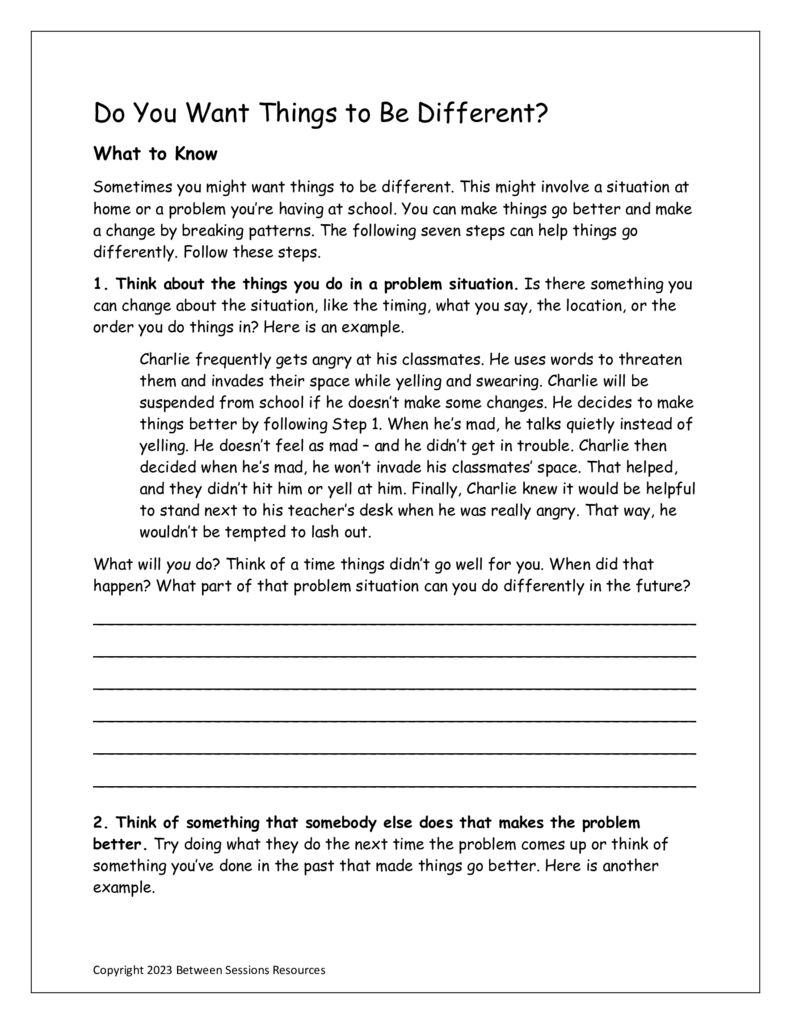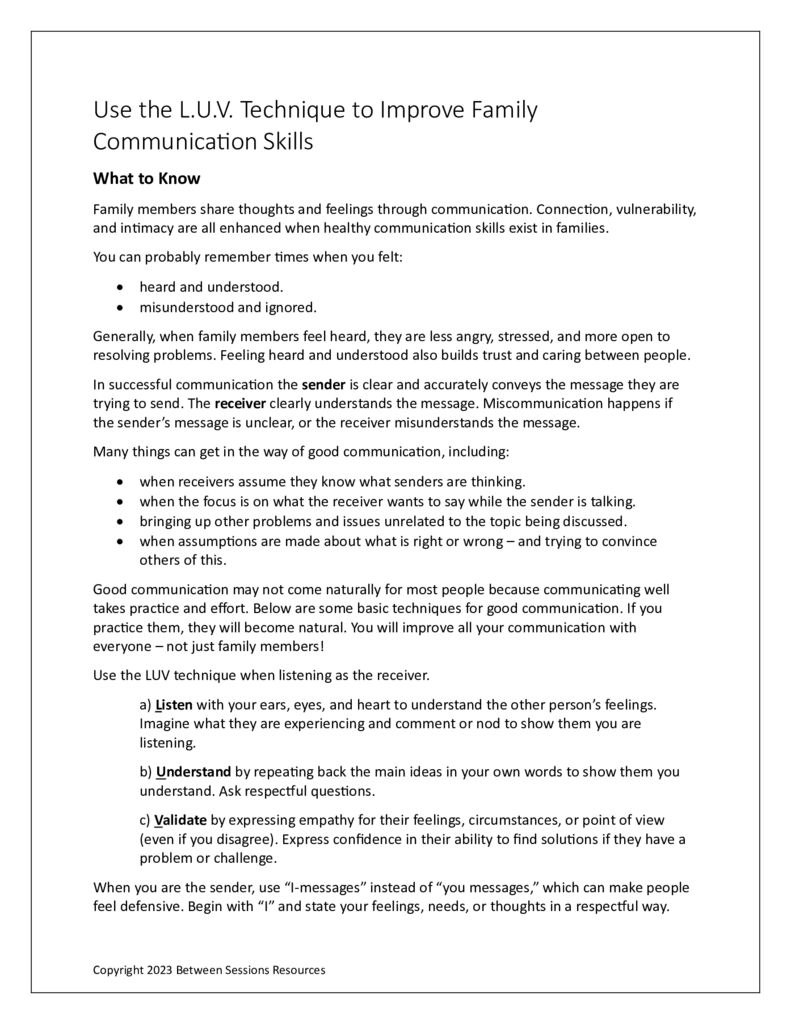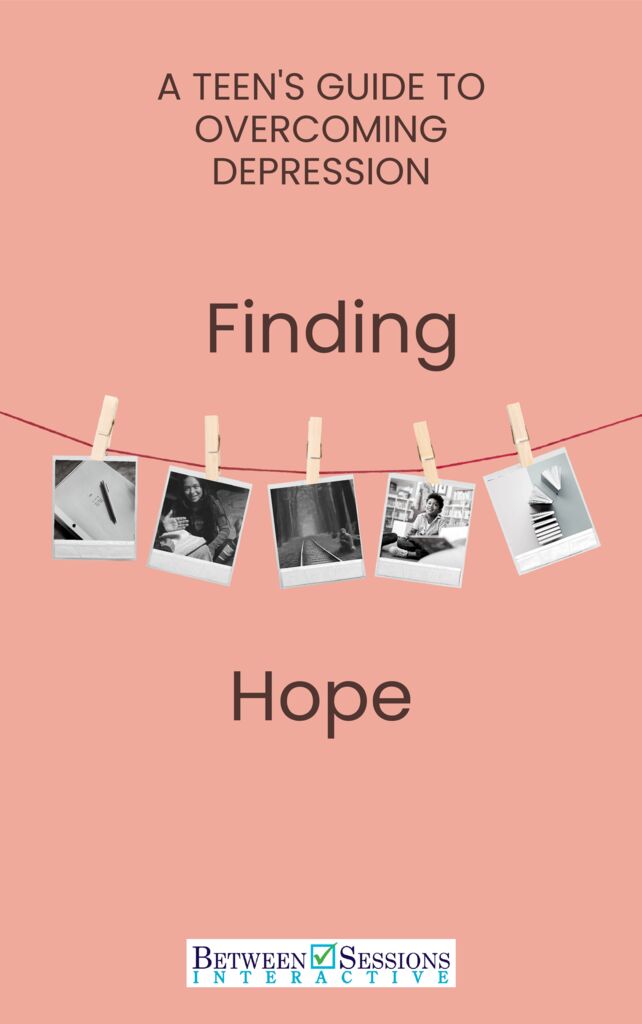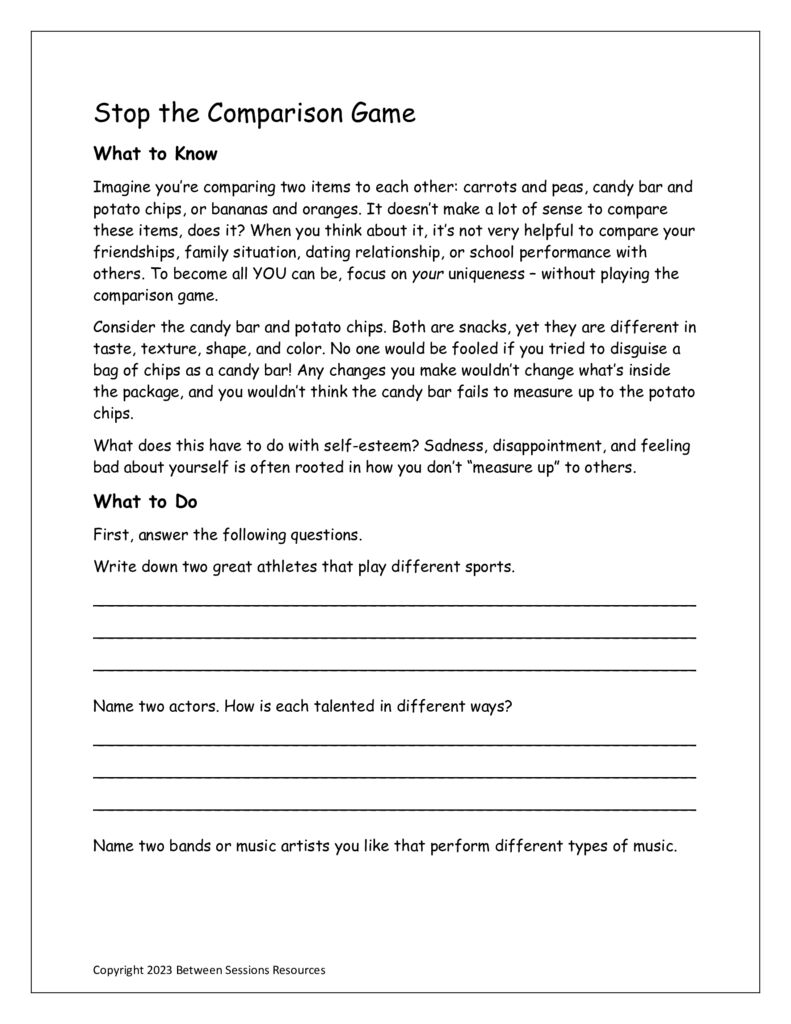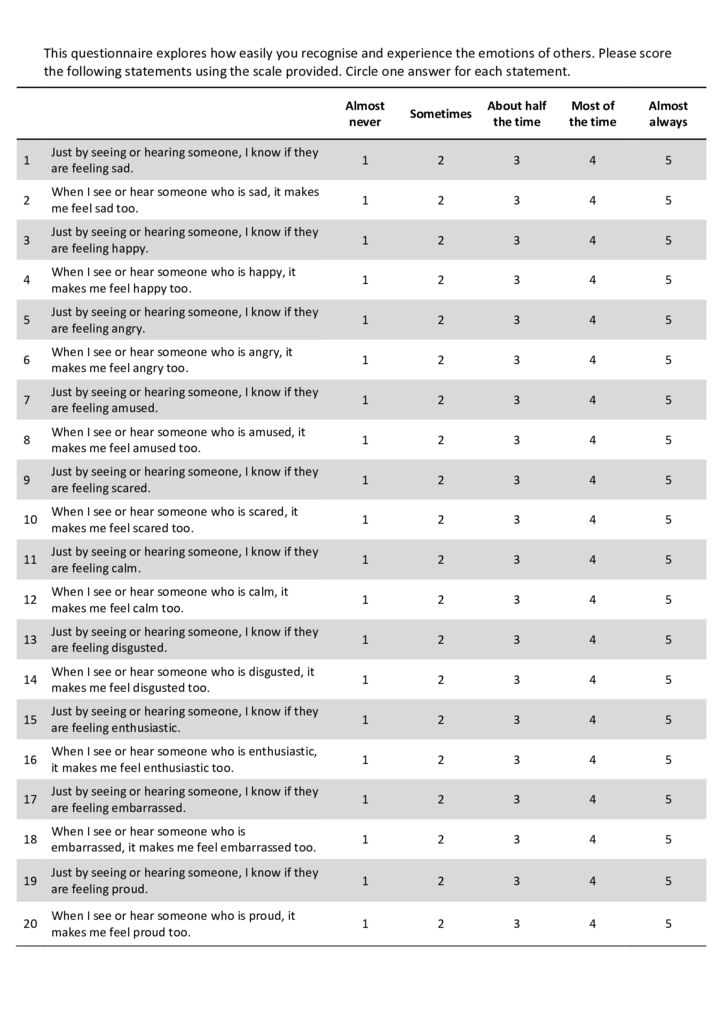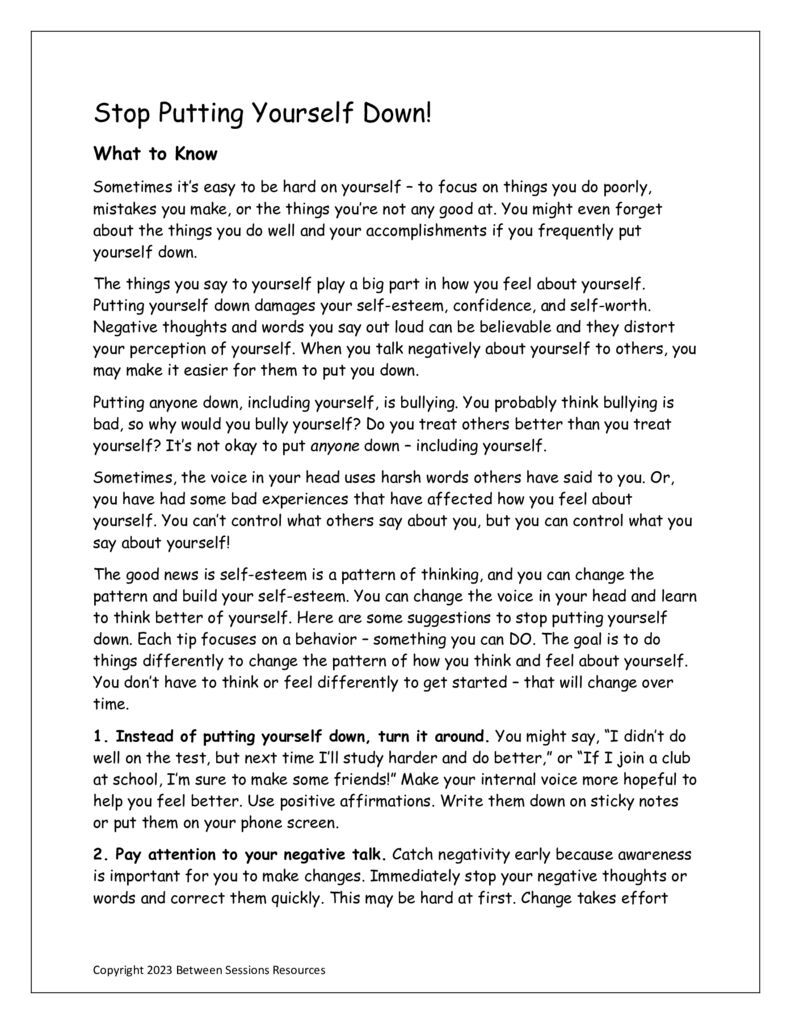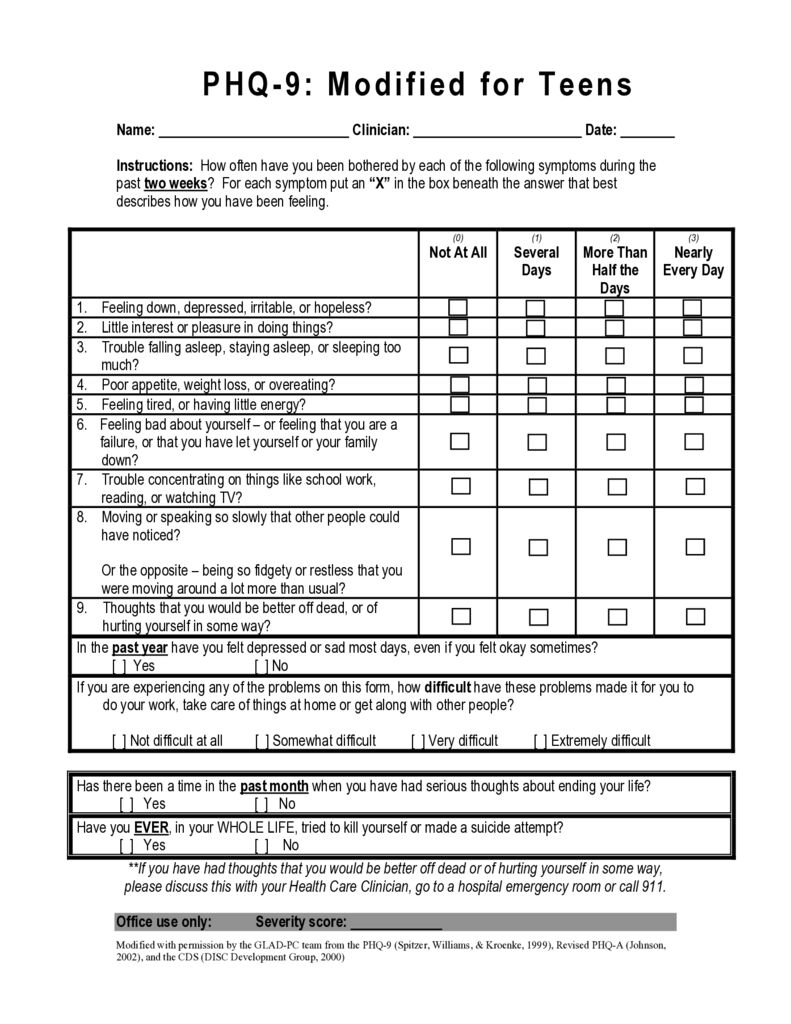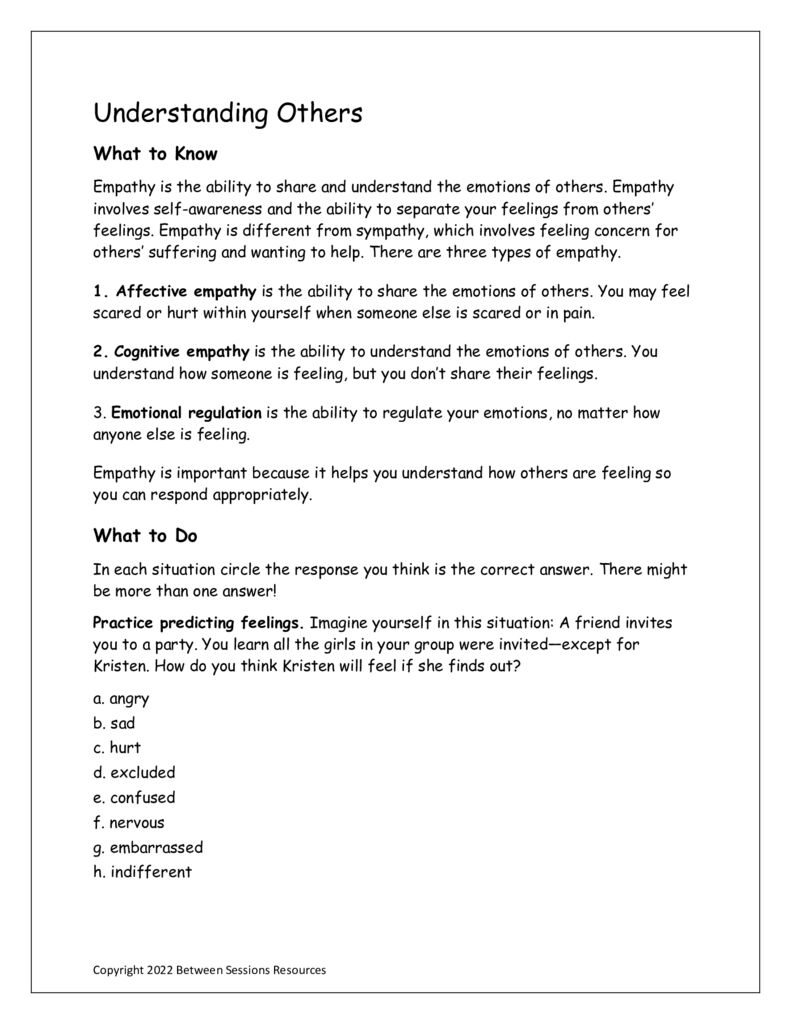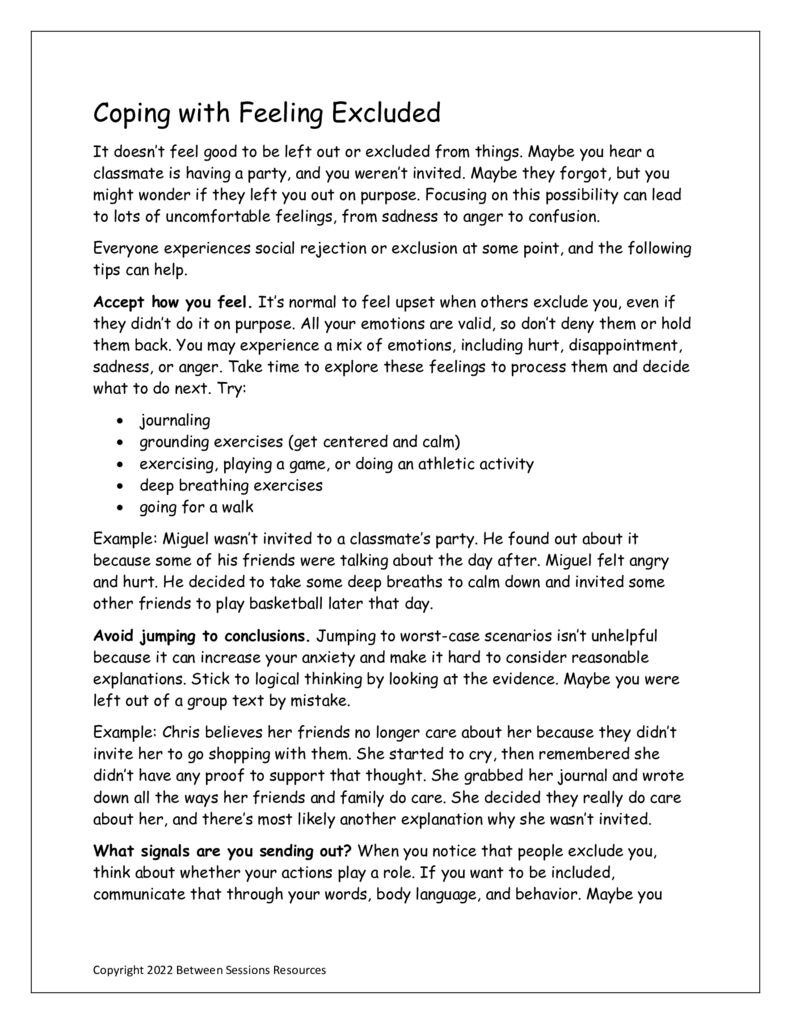Teens have a special way of communicating and learning about themselves, so we’ve made sure that all our therapeutic activities for teens are appealing and engaging to this age group.
To modify the tools, click the ‘Send to Client’ button by each tool to open the Psychology Forms Filler. You can then edit the tool as you see fit and either print it out or send it to a client to be filled out online. Click here for a tutorial on using the Psychology Forms Filler.
We’ve tried to address every teen issue we can think of, and more tools are added every week!
If you are looking for something you can’t find on this site, please let us know by clicking here and our team of writers, graphic artists, and therapists will custom-design it for you.
This worksheet teaches teens seven strategies to look at their problems differently, including: looking at how others have handled a similar problem, acknowledging feelings, but understanding that they don’t determine actions; communicating with others more effectively. (0323, decision-making, solution-focused therapy, problem-solving, impulse control)
This worksheet was developed to help families develop better communication skills. It describes the LUV technique which teaches family members to Listen, Understand, and Validate. It encourages the use of I-Messages and compliments and discourages negative communication like put-downs and criticism. A chart is provided to keep track of how family members use these tools at a family meeting. (0323, communication, family therapy)
This workbook contains 12 activities to help teens understand their depression and develop skills to find hope, manage stress, reach out to others, and more. (0223, depression)
This worksheet is intended to help teens understand that continuously comparing themselves to others can be detrimental to their self-esteem. A chart is used for teens to think about how they have compared themselves to someone they know and how this comparison made them feel. Questions guide teens to find ways to appreciate others without comparing themselves unfavorably. (0123, self-image, self-worth, identity, social skills)
This worksheet is designed to help people with depression appreciate small changes in their attitude. It asks them to look back at the past week and record three things they felt confident about, three things they coped with, three things that made them happy, and so on. (0123, depression)
The Perth Empathy Scale (PES) is a 20-item self-report measure of empathy ability. The PES measures people’s ability to recognize emotions in others (cognitive empathy) and vicariously experience others’ emotions (affective empathy), across positive and negative emotions. (0123, assessment, empathy)
This worksheet is designed to help teens develop a more positive self-image. There are 10 suggestions on how they can develop a better self-image, and a chart for teens to keep track of their accomplishments. Follow-up questions help teens explore other factors that can contribute to a positive self-image. (0123, self-esteem, self-image, positive psychology, depression)
The PHQ–9 is a 13-question screening tool that asks teens to rate symptoms of depression they had in the past two weeks. The simple scoring can indicate the possible existence of different levels of depression and the need for follow-up. (0122. depression, assessment)
This worksheet teaches teens the different types of empathy and helps them understand how to increase their empathy by reading body language, being compassionate, and listening carefully to others. (1222, empathy, behavior problems, social problems, Asperger Syndrome, ASD)
This worksheet is designed to help teens deal with being excluded. It instructs them to accept their feelings, avoid jumping to conclusions, communicate their needs, pay attention to their strengths, and more. Questions help teens explore the times they have felt excluded and think about what they could have done differently. (1222, social skills, loneliness, peer pressure)

